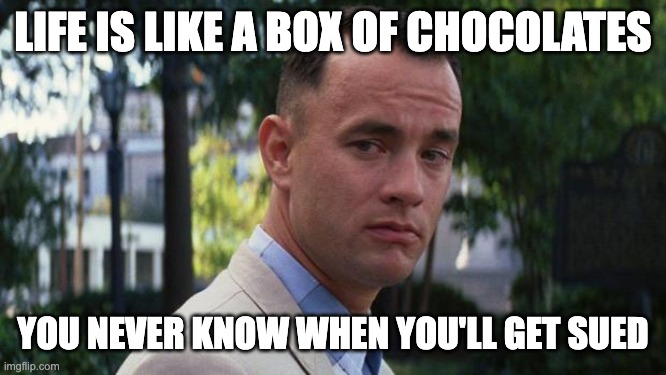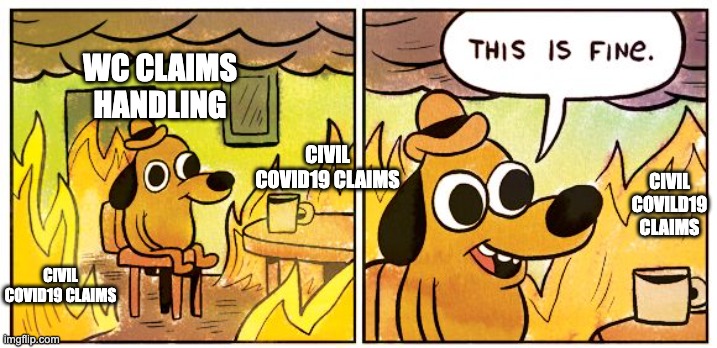Happy Wednesday, dear readers!
Gather around for story time! It was about 15 years ago, that on a scorching Sacramento morning, I sat down for my first class in Torts. I cannot adequately describe for you’re the excitement I felt that first day of law school, as I look forward to what promised to be the best grad school class ever!
Nor can I now, all those years later, relate to you the depth of sadness and the merciless feeling of betrayal that grew in my heart over the next several weeks, as I learned that torts had nothing to do with tasty little baked goods, but instead was the province of civil wrongs. It was there that I learned that, technically speaking, two civil wrongs could potentially lead to the creation of a civil right.
Anywho, jumping back to today, one of the torts that we studies with so much alacrity is the tort of defamation. There are many species of this, such as slander, libel, etc., but generally speaking, if you damage a person’s reputation, you will have to make him or her whole.
So let’s talk about the case of Fonseca v. Wal-Mart. In late 2024, a jury awarded Mr. Fonseca almost 35 million dollars in his defamation suit against Wal-Mart. After he filed a workers’ compensation claim for his former employer, Wal-Mart accused him of making a fraudulent claim because his doctor gave him work restrictions against driving at work, and he was video-taped driving his personal vehicle.
Ultimately, Mr. Fonseca applied for other jobs with other employers, but alleged that he had to repeat the reason for his termination of employment to these potential new employers. Wal-Mart apparently plans to “pursue all available remedies” which would likely be an appeal.
As you can imagine, your humble blogger wasn’t there when Mr. Fonseca first was injured, or was video-taped, or was fired, or was trying to get another job with another employer. The jury found the facts based on the evidence presented and awarded money accordingly.
But, in true Wal-Mart fashion, we are being offered a great value here! For the price of reading this blog post, we are all reminded that unlike Las Vegas, what happens in comp doesn’t necessarily stay in comp. What should the employer do when given information suggestion the injured worker is exceeding work restrictions?
Well, for starters, it’s a good idea to establish a record, particularly with an investigator who can document dates, times, and activities to a level that will not be effectively impeached in court. Then, it’s important to realize that the only ones among us who are doctors… are doctors. No amount of watching House or reading Sherlock Holmes will qualify the laymen among us to determine if the applicant is a faker.
Factual evidence should be submitted to the treating physician and/or a med-legal. It can be done with a deposition or a request for supplemental report. “Dear Dr. Nick Riviera, would you please review the enclosed footage, taken on April 1, 2025, and advise if Mr. Malingerer is engaged in activities consistent with his presentation in your clinic about 20 minutes ago?”
Whatever the actual facts in the Fonseca case, facts that are, no doubt, hotly contested by the parties, this serves as an excellent reminder to all of us to be very careful with the downstream consequences of our actions.




